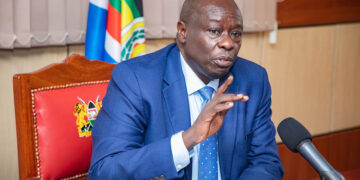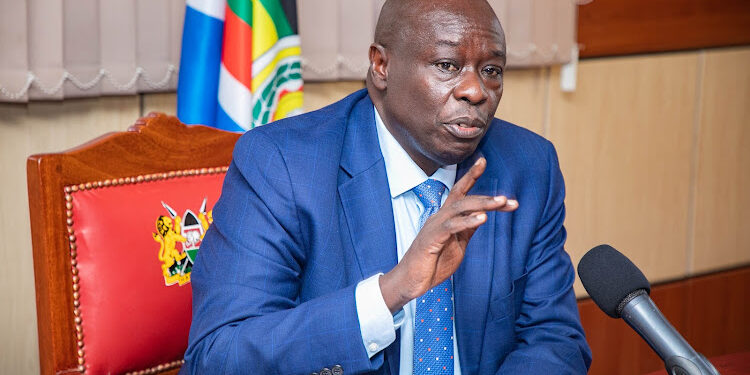By Ebi Kesiena
Kenya’s Deputy President, Rigathi Gachagua, vehemently denied corruption allegations on Monday, just a day before a decisive impeachment vote, exposing deep divisions within the ruling party.
Speaking at a press conference, Gachagua condemned the accusations as “outrageous” and “sheer propaganda,” claiming they were politically motivated attempts to force him out of office. “This is nothing more than a plot to hound me out of government,” he asserted.
Despite the gravity of the accusations, no formal charges have been filed by prosecutors, and no judicial inquiry is underway. However, Gachagua has been unable to stop the impeachment process through multiple court attempts over the past week.
The 59-year-old politician, who serves as President William Ruto’s deputy, faces a barrage of charges including corruption, undermining government efforts, and fostering ethnic divisions. On October 1, Kenyan lawmakers initiated the impeachment proceedings, with 291 MPs backing the motion, far surpassing the required minimum of 117 votes.
A prominent businessman from Kenya’s Kikuyu community, Gachagua survived past corruption scandals to ascend to his current position as Ruto’s running mate in the hotly contested 2022 election. However, in recent months, Gachagua has expressed frustration with being marginalized by President Ruto and has been accused of supporting youth-led protests that erupted in June over controversial tax hikes.
These growing political tensions have drawn comparisons to the public fallout between Ruto and former President Uhuru Kenyatta during Ruto’s tenure as deputy president.
At the heart of the impeachment motion are allegations that Gachagua accumulated assets worth 5.2 billion shillings ($40 million) in just two years—despite earning an annual salary of $93,000. Among the questioned assets is the iconic Treetops Hotel, famously known as the place where Britain’s Princess Elizabeth became Queen.
Gachagua, however, insists his wealth is the result of legitimate business dealings and an inheritance from his late brother. “The properties my brother worked tirelessly for, meant to benefit his family, are now being labeled as proceeds of corruption. How unfair and cruel can you be to a dead man?” he said, passionately defending his innocence.
He warned that his ousting could spark unrest among his supporters.
The impeachment motion requires a two-thirds majority in the National Assembly to advance to the Senate, where it will face further debate. If passed, Gachagua could become Kenya’s first deputy president to be impeached since the introduction of the revised constitution in 2010.



































